🧠 Welcome to the Cognitive Revolution in Dog Behavior
Where understanding replaces obedience, and transformation begins with thought.
Most dog owners are told the same thing:
Get a trainer. Buy treats. Redirect the bad behavior. Reward the good.
But what if that’s the very reason dogs become over excited and struggle to grow?
The truth is, training doesn’t develop the mind, it manages it. Once you stop managing the training, everything falls apart, they regress.
That’s because obedience isn’t learning. It’s repetition. It’s muscle memory, not maturity.
And when a developing mind of a puppy is trained through rewards and reactions before it’s even cognitively formed, it never learns to think, only to perform.


🐾 Why Early Guidance Matters
Puppyhood is not about training, it’s about imprinting the nervous system for stability.
When done right, this stage sets the foundation for:
• Emotional resilience
• Social balance
• Confidence and self-control
When done wrong, through premature obedience, constant stimulation, or overexposure, it hardwires the opposite:
Anxiety. Over-arousal. Reactivity.
That’s why contacting me before a trainer is the single best decision you can make for your dog’s long-term development.
Because prevention isn’t cheaper, it’s transformative.

🧩 The Cognitive Approach — A New Way Forward
My work isn’t about controlling dogs.
It’s about awakening intelligence.
By focusing on cognitive learning, we don’t “train away” behavior, we teach the mind behind it, to process the world differently.
This is how you raise a dog that:
✔️ Thinks before reacting
✔️ Self-regulates without commands
✔️ Understands your boundaries intuitively
✔️ Doesn’t need lifelong training to “stay fixed”
In the cognitive model, behavior becomes the symptom, and understanding becomes the solution.






Choose the Membership That Fits You Best
Enjoy unlimited access to Tony Nila and cancel anytime you wish to. Start with a 7 day trial on us.
🔥 What Makes This Aproach Different
Where traditional trainers focus on behavior correction, I focus on brain development and emotional regulation.
You won’t find:
❌ Treat-based bribery
❌ Endless commands
❌ “Correct and reward” loops
❌ Toys or food dependency
Instead, you’ll learn how to raise a reflective, emotionally balanced thinker who doesn’t need to be managed; because they’ve learned how to manage themselves.
You’ll see results that last, because they come from within.
Month to Month
Cancel Anytime

About Tony Nila
Tony Nila is a respected Canine Cognitive Specialist with over a decade of experience helping dogs and their owners build trust, boundaries, and harmony. As the founder of Tony-Nila.com, Tony’s groundbreaking approach focuses on Cognitive learning, trust-based communication, and respecting a dog’s natural instincts.
Unlike traditional obedience training methods, Tony’s philosophy emphasizes:
-
Boundaries over obedience for emotional and cognitive growth.
-
No tools, no treats, no force, just natural learning and mutual understanding.
His unique methods have empowered countless dog owners to transform their relationships and raise well-balanced, independent dogs.
_edited.jpg)
Tony Nila
Canine Cognitive Specialist
Drawing inspiration from universal truths about behavior, Tony Nila rejects outdated training ideas and challenges the status quo. His work bridges the gap between dogs’ wild instincts and domestic needs, creating a partnership rooted in mutual respect.
Tony’s methods have been inspired by leading canine experts and scientists, including:
-
Charles P. Eisenmann and his work with the famed dog London.
-
Edward Tolman (U.C Berkeley) and his groundbreaking insights into latent learning.
Tony’s mission is simple yet profound: to help dog owners build deeper connections with their canine companions by understanding and respecting their cognitive and emotional needs. Through his book, Raising Your Perfect Puppy, and personalized coaching services, Tony inspires others to rethink dog training and embrace natural, trust-based methods.
When Tony isn’t helping clients, he is a passionate educator, speaker, and advocate for animal welfare. His innovative work has transformed the lives of dog owners worldwide, redefining what it means to live in harmony with man’s best friend
⚡ The Hidden Problem No One Talks About
Every year, thousands of puppies are sent to obedience classes before their cognitive stage of development is ready.
They learn commands before they learn context.
The result?
✔️A dog that listens, until the environment changes.
✔️A dog that behaves, until their emotion overrides the command.
✔️A dog that “knows better” but can’t self-regulate when it matters most.
These aren’t bad dogs.
They’re dogs raised in an outdated system of operant conditioning (positive reinforcement and negative reinforcement) a system built on reactions, not reflection.
New Dog Owners:
Build strong foundations with your puppy.
Experienced Owners:
Address behavioral issues and learn advanced trust-based methods.
Dog Lovers:
Develop a deeper, more meaningful connection with your canine companion.
Continued Education
Cognitive Learning Methods: Learn how dogs process information naturally to self-correct behaviors.
🌍 This Is Not Training. It's a Partnership
I don’t teach commands.
I teach connection.
You’ll learn how to communicate in a way your dog actually understands, through awareness, consistency, and emotional clarity.
And when your dog begins to understand you, their behavior begins to reflect that understanding naturally.
This isn’t about obedience.
It’s about evolution, for both of you.
⸻

💬 Start With the Cognitive Consultation
Before we work together, we begin with a Cognitive Behavioral Consultation, a 90-minute deep dive into your dog’s mind, environment, and development.
You’ll leave with:
✨ A personalized plan for immediate improvement
✨ Clear insight into why your dog behaves the way they do
✨ A roadmap for raising a stable, emotionally balanced companion
Most clients describe this session as the moment everything finally made sense.
⸻
💡 If You’re Reading This, You Already Feel It
That pull in your gut that says:
“There’s something deeper going on here.”
You’re right. There is. Your dog doesn’t need to be managed, they need to be understood. And once you see the difference, there’s no going back.
⸻
🔗 Book Your Cognitive Consultation
If you’re ready to understand your dog on a level most people never will, this is where it begins. One conversation can change the way you see your dog forever.
🗓️ Book Now → Begin the Cognitive Revolution
⸻
“Training fixes symptoms. Cognition transforms lives.”
— Tony Nila

🌍 This Is Not Training. It's a Partnership
I don’t teach commands.
I teach connection.
You’ll learn how to communicate in a way your dog actually understands, through awareness, consistency, and emotional clarity.
And when your dog begins to understand you, their behavior begins to reflect that understanding naturally.
This isn’t about obedience.
It’s about evolution, for both of you.
⸻
💬 Start With the Cognitive Consultation
Before we work together, we begin with a Cognitive Behavioral Consultation, a 90-minute deep dive into your dog’s mind, environment, and development.
You’ll leave with:
✨ A personalized plan for immediate improvement
✨ Clear insight into why your dog behaves the way they do
✨ A roadmap for raising a stable, emotionally balanced companion
Most clients describe this session as the moment everything finally made sense.
⸻
💡 If You’re Reading This, You Already Feel It
That pull in your gut that says:
“There’s something deeper going on here.”
You’re right. There is. Your dog doesn’t need to be managed, they need to be understood. And once you see the difference, there’s no going back.
⸻
🔗 Book Your Cognitive Consultation
If you’re ready to understand your dog on a level most people never will, this is where it begins. One conversation can change the way you see your dog forever.
🗓️ Book Now → Begin the Cognitive Revolution
⸻
“Training fixes symptoms. Cognition transforms lives.”
— Tony Nila

Let's Stay Connected
Subscribe to our newsletter and get updates about upcoming classes and inspiration

